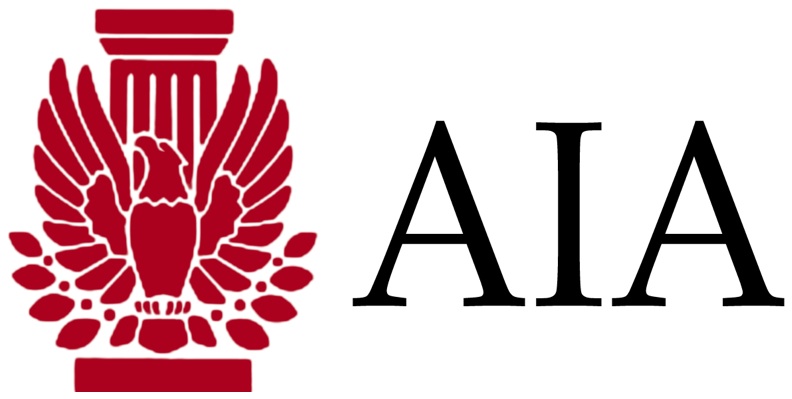Washington, D.C. – March 22, 2011 - The American Institute of Architects (AIA) today announced that it has added 13 documents to AIA Documents-on-Demand™, bringing the total number of documents available through this service to 48. AIA Documents-on-Demand is a Web-based service that enables both PC and MAC users to easily access, and electronically fill out and print the latest AIA Contract Documents, anytime and anywhere with access to the Internet and a printer.
“AIA Documents-on-Demand continues to be the most popular, cost-effective service, offering those in the design and construction industry with user-friendly and 24/7 access to AIA Contract Documents,” said Young C. Chang, Director, Web-based Products. “We’re very excited to expand the number of documents through this service while also continuing to offer solutions and meet our users’ needs to ensure they save both time and money with our easy-to-complete electronic documents.”
These latest additions now make available the full selection of AIA scope of services documents through Documents-on-Demand. The documents describe architectural services to be provided either in addition to the Basic Services set forth in the standard AIA Owner-Architects Agreements or to be provided as stand-alone services. If used to supplement Basic Services, the scope of services documents can be used in conjunction with standard AIA Owner-Architect Agreements, such as B101™-2007. If used to provide stand-alone services, they may be paired with B102™-2007, Standard Form of Agreement Between Owner and Architect without a Predefined Scope of Architect’s Services. Both B101-2007 and B102-2007 are also available on Documents-on-Demand.
The following documents have been added to AIA Documents-on-Demand:
- B201™–2007 (formerly B141–1997 Part 2), Standard Form of Architect’s Services: Design and Construction Contract Administration
- B202™–2009, Standard Form of Architect’s Services: Programming
- B203™–2007, Standard Form of Architect’s Services: Site Evaluation and Planning
- B204™–2007, Standard Form of Architect’s Services: Value Analysis, for use where the Owner employs a Value Analysis Consultant
- B205™–2007, Standard Form of Architect’s Services: Historic Preservation
- B206™–2007, Standard Form of Architect’s Services: Security Evaluation and Planning
- B207™–2008 (formerly B352–2000), Standard Form of Architect’s Services: On-Site Project Representation
- B209™–2007, Standard Form of Architect’s Services: Construction Contract Administration, for use where the Owner has retained another Architect for Design Services
- B210™–2007, Standard Form of Architect’s Services: Facility Support
- B211™–2007, Standard Form of Architect’s Services: Commissioning
- B214™–2007, Standard Form of Architect’s Services: LEED Certification
- B252™–2007, Standard Form of Architect’s Services: Architectural Interior Design
- B253™–2007, Standard Form of Architect’s Services: Furniture, Furnishings and Equipment Design
AIA Documents-on-Demand allow users who do not need or cannot afford the convenience, extensive selection and ease-of-use of AIA Contract Document software to purchase and download only the AIA Contract Document forms and agreements necessary for a certain project. Access to the service is free. The price per document varies from $4.95 to $19.95.
Availability
The new AIA Contract Documents on AIA Documents-on-Demand will be available beginning March 22, 2011. To purchase AIA Documents-on-Demand, please visit http://documentsondemand.aia.org.
More information about AIA Contract Documents can be found at www.aia.org/contractdocs. AIA Contract Documents software can be purchased at www.aia.org/contractdocs/purchase. Documents in paper form are available through the AIA’s full service distributors. For a listing of full service distributors and pricing information, please visit www.aia.org/docs_purchase.
About The American Institute of Architects
For over 150 years, members of the American Institute of Architects have worked with each other and their communities to create more valuable, healthy, secure, and sustainable buildings and cityscapes. Members adhere to a code of ethics and professional conduct to ensure the highest standards in professional practice. Embracing their responsibility to serve society, AIA members engage civic and government leaders and the public in helping find needed solutions to pressing issues facing our communities, institutions, nation and world. Visit www.aia.org.
Related Stories
Office Buildings | May 20, 2024
10 spaces that are no longer optional to create a great workplace
Amenities are no longer optional. The new role of the office is not only a place to get work done, but to provide a mix of work experiences for employees.
Mass Timber | May 17, 2024
Charlotte's new multifamily mid-rise will feature exposed mass timber
Construction recently kicked off for Oxbow, a multifamily community in Charlotte’s The Mill District. The $97.8 million project, consisting of 389 rental units and 14,300 sf of commercial space, sits on 4.3 acres that formerly housed four commercial buildings. The street-level retail is designed for boutiques, coffee shops, and other neighborhood services.
Construction Costs | May 16, 2024
New download: BD+C's May 2024 Market Intelligence Report
Building Design+Construction's monthly Market Intelligence Report offers a snapshot of the health of the U.S. building construction industry, including the commercial, multifamily, institutional, and industrial building sectors. This report tracks the latest metrics related to construction spending, demand for design services, contractor backlogs, and material price trends.
K-12 Schools | May 15, 2024
A new Alabama high school supports hands-on, collaborative, and diverse learning
In Gulf Shores, a city on Alabama’s Gulf Coast, a new $137 million high school broke ground in late April and is expected to open in the fall of 2026. Designed by DLR Group and Goodwyn Mills Cawood, the 287,000-sf Gulf Shores High School will offer cutting-edge facilities and hands-on learning opportunities.
Adaptive Reuse | May 15, 2024
Modular adaptive reuse of parking structure grants future flexibility
The shift away from excessive parking requirements aligns with a broader movement, encouraging development of more sustainable and affordable housing.
Affordable Housing | May 14, 2024
Brooklyn's colorful new affordable housing project includes retail, public spaces
A new affordable housing development located in the fastest growing section of Brooklyn, N.Y., where over half the population lives below the poverty line, transformed a long vacant lot into a community asset. The Van Sinderen Plaza project consists of a newly constructed pair of seven-story buildings totaling 193,665 sf, including 130 affordable units.
K-12 Schools | May 13, 2024
S.M.A.R.T. campus combines 3 schools on one site
From the start of the design process for Santa Clara Unified School District’s new preK-12 campus, discussions moved beyond brick-and-mortar to focus on envisioning the future of education in Silicon Valley.
University Buildings | May 10, 2024
UNC Chapel Hill’s new medical education building offers seminar rooms and midsize classrooms—and notably, no lecture halls
The University of North Carolina at Chapel Hill has unveiled a new medical education building, Roper Hall. Designed by The S/L/A/M Collaborative (SLAM) and Flad Architects, the UNC School of Medicine’s new building intends to train new generations of physicians through dynamic and active modes of learning.
Sustainability | May 10, 2024
Perkins&Will’s first ESG report discloses operational performance data across key metrics
Perkins&Will recently released its first ESG report that discloses the firm’s operational performance data across key metrics and assesses its strengths and opportunities.
MFPRO+ News | May 10, 2024
HUD strengthens flood protection rules for new and rebuilt residential buildings
The U.S. Department of Housing and Urban Development (HUD) issued more stringent flood protection requirements for new and rebuilt homes that are developed with, or financed with, federal funds. The rule strengthens standards by increasing elevations and flood-proofing requirements of new properties in areas at risk of flooding.

















